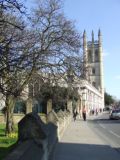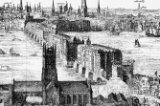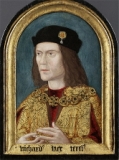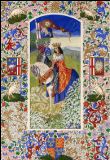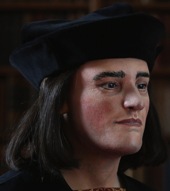Richard III Visits Oxford University
Not long after his coronation, Richard III visited Oxford University as one of the first stops of his Royal Progress. He stayed for 3 days, 24 to 26 July 1483, at Magdalen College on the invitation by the college’s founder, William Waynflete, bishop of Winchester.
Richard was “honourably received, firstly outside the University by the Chancellor of the University and by the Regents and non-Regents; then he was received honourably and in procession at the College of the Blessed Mary Magdalene by a speech by the lord Founder”. The day after his reception, we see Richard following his own cultural taste. He listened to two debates, one on moral philosophy and one on theology.
I think Hairsine is right when he remarks:
There was certainly no need for a medieval autocrat to sit through not one but two learned debates if he did not find a genuine interest there. One is lead to believe that Richard’s visits to Oxford and Cambridge were welcome interludes from the cares of government.
Richard seems to have been impressed with the debates as well as his welcome and rewarded the participants and Magdalen College handsomely with venison and cash. The whole event was in detail recorded in the Register of Magdalen College, which the anonymous Chronicler ended with the words Vivat rex in eternum, which can be translated as a “may the King live forever!”.
On the last day of his visit, Saturday 26 July, the king toured the university, before travelling on to Woodstock.
References:
Robert C Hairsine, “Oxford University and the Life and Legend of Richard III”, in: J Petre (ed.), Richard III: Crown and People, Richard III Society, 1985, pp. 307-332
Rhoda Edwards, The Itinerary of King Richard III, 1483-1485. Richard III Society, 1983 , p.5
For the interesting history of Magdalen College, you can download an illustrated history book, The Story of Magdalen College Oxford, by Rena Gardiner from the College website.
Dorothea Preis
Tags: Education, Oxford, Oxfordshire, Richard III

